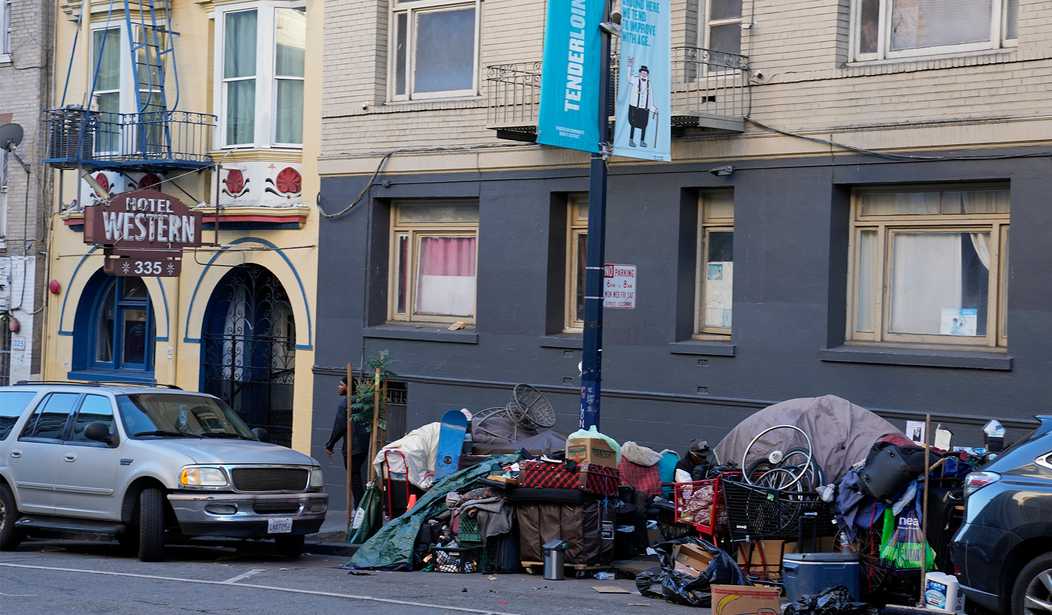Along with everything else that the Trump administration has been doing, it seems that they are also quietly changing the criteria for grant applications for homelessness organizations. "Housing first," it seems, is out. "Sobriety first" is in. That's a good thing.
Late last week, the Trump administration released revised scoring criteria for homelessness organizations seeking grant funding from the Department of Housing and Urban Development’s Continuum of Care program.
The move signals a new direction in federal homelessness policy. For more than a decade, HUD had supported “Housing First,” an approach that calls for permanent rental subsidies without behavioral expectations. Now, the agency will favor transitional work- and sobriety-oriented homelessness programs, in keeping with the administration’s July executive order.
This is a big change, as critics have noted, though they miss the mark on many of the details. First, funds are being shifted, not “cut.” The Continuum of Care program will next year deliver more homelessness funding—$3.9 billion—than the previous high set under the Biden administration. And to the extent that more funds flow to transitional housing, which serves more people than permanent housing, more people will receive services.
Transitional housing implies that "this is where you go to get clean and sober," and it's not unlikely that people could be required by a judge to enter one of these facilities as a consequence of being picked up for anything from public intoxication to assault.
Read More: Changes Push Millions Off SNAP Even As USDA Secretary Rollins Looks to Bigger Cuts
President Trump Says He's Definitely Open to 1900s Throwback Measure to Clean Up Streets
The simple fact is that the many solutions to homelessness ballyhooed by the left simply aren't working. Even the United States' northernmost major city, Anchorage, Alaska, has a substantial problem with homeless encampments. In Alaska, the unsightliness of these encampments is magnified by the fact that these trash-strewn enclaves provide a buffet table for bears, but the encampments are a problem now in almost every American city. In Los Angeles' old Miracle Mile, we are told, one can't swing a cat by the tail without hitting a ragged old tent or a bum passed out on the sidewalk.
Here's another big question:
Many questions remain. To preserve funding access, will some permanent housing programs just rebrand themselves as transitional housing? What about those individuals who need a “higher level of care,” such as people with serious and persistent mental illness? Some in that cohort should be the responsibility of mental-health systems, not homeless services. Ideally, systemic change in homeless services will be coupled with systemic change in mental-health services.
There are, among the homeless populations, bound to be a certain percentage who cannot be rehabilitated or redeemed. Some may have severe and permanent mental illnesses. Some may be brain-damaged or permanently disabled by drug use or alcoholism. There should be a policy solution for them as well, even if it is permanent institutionalization. Even that, even an asylum, is preferable to what appears to be the preferred policy of blue states and blue cities: Letting them die on the streets.
For those that are redeemable, the cycle has to be broken. Sobriety first, even if it's by a judge's order, confining them to transitional housing. Sobriety first, then work, then they can achieve independence on their own. But simply warehousing these people in government-funded "permanent" housing simply isn't working, and as long as there are no sobriety/work conditions attached, it never will.
Editor’s Note: Do you enjoy RedState's conservative reporting that takes on the radical left and woke media? Support our work so that we can continue to bring you the truth.
Join RedState VIP and use the promo code FIGHT to get 60% off your VIP membership!














Join the conversation as a VIP Member